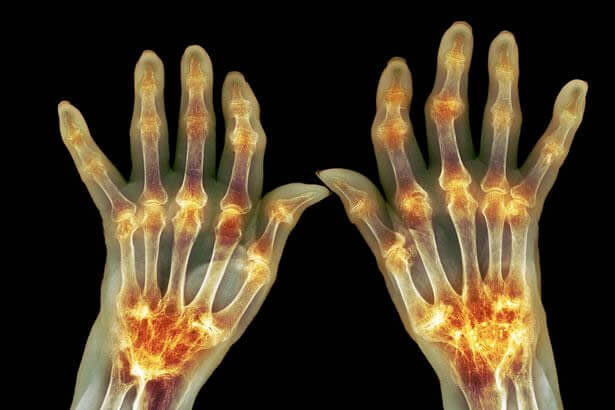Rheumatoid Arthritis at Rheumatology Clinic DRHC Dubai
At Dr. Rami Hamed Medical Center, Dubai, our expert rheumatologist specializes in the diagnosis and treatment of rheumatoid arthritis. We are committed to providing our patients with personalized care and effective treatment options to help them manage their condition and improve their quality of life.
Causes and Risk Factors
Rheumatoid arthritis is an autoimmune disease that occurs when the immune system mistakenly attacks the body's own tissues, leading to inflammation and damage in the joints. The exact cause of rheumatoid arthritis is not known, but it is believed to be a combination of genetic, environmental, and immune system factors. Several factors can increase the risk of developing rheumatoid arthritis, including:
- Gender: Rheumatoid arthritis is more common in women than men.
- Age: Rheumatoid arthritis can occur at any age, but it is most commonly diagnosed in people between the ages of 40 and 60.
- Family history: Having a family history of rheumatoid arthritis or other autoimmune diseases increases the risk of developing the condition.
- Smoking: Smoking is a significant risk factor for developing rheumatoid arthritis.
- Environmental factors: Exposure to certain environmental factors, such as infections and pollutants, can trigger rheumatoid arthritis in some people.
Symptoms
The symptoms of rheumatoid arthritis can vary from person to person and may come and go over time. Common symptoms of rheumatoid arthritis include:
- Joint pain and swelling, especially in the small joints of the hands and feet
- Stiffness, especially in the morning or after periods of inactivity
- Fatigue
- Fever
- Weight loss
- Loss of appetite
- Joint deformities
- Eye inflammation
- Heart and lung problems

Diagnosis
Diagnosing rheumatoid arthritis typically involves a physical examination, blood tests to measure inflammation and autoantibodies, and imaging tests such as X-rays or ultrasound to look for joint damage.
Treatment Options
Rheumatoid arthritis (RA) treatment typically involves a combination of medications and lifestyle changes. Medications include disease-modifying antirheumatic drugs (DMARDs), which can be biological or non-biological. Biological DMARDs target specific parts of the immune system involved in inflammation, while non-biological DMARDs work to suppress the immune system more broadly. Additionally, NSAIDs may be prescribed for pain and inflammation management during acute flare-ups. Lifestyle changes such as maintaining a healthy weight, regular exercise, and avoiding smoking can also help manage symptoms and improve overall quality of life for individuals with RA.
Surgical Treatment Options
Surgical treatment options for rheumatoid arthritis aim to alleviate pain and restore joint function.
When to Seek Medical Advice
If you are experiencing symptoms of rheumatoid arthritis, it is important to see a rheumatologist for a proper diagnosis and treatment plan.
.png?width=279&height=59&name=bookanappointment%20(1).png)
Complications
Complications of rheumatoid arthritis may include joint damage, joint deformities, and inflammation in other parts of the body, such as the heart and lungs.
If you are concerned about rheumatoid arthritis or are experiencing symptoms of the condition, it is important to see a rheumatologist for a proper diagnosis and treatment plan. Contact us today to schedule an appointment and take the first step towards managing your condition and improving your quality of life.





.png?width=279&height=59&name=bookanappointment%20(1).png)




